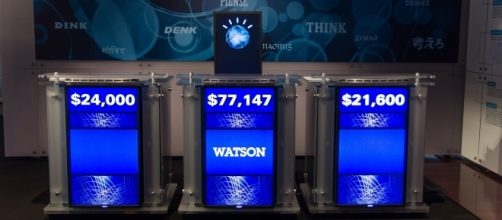When it comes to the widespread use of Artificial Intelligence (AI) we’ve been fooled before. In the 1970s major investments to develop computers that could understand humans fizzled out. In the 1990s, Japanese scientists tried to build similar systems, but they never caught on in the marketplace. Now, IBM has opened their cognitive computing system called Watson to the developer community in the hope that by making this technology readily available, it will fulfill the promise of human and machine interaction.
The results show potential, but the move has not yet improved IBM’s rocky financial picture.
The company says Watson is boasting strong growth, but IBM recently reported its 18th straight quarter of declining earnings. The company’s CEO – Ginni Rometty – steadfastly believes that Watson will have a huge impact in both the business and consumer worlds, telling a group of developers in San Francisco this week, “We believe that by the end of next year, one billion people will be touched by Watson.”
IBM got big boost when computer won on a game show
Watson was originally developed in the mid-2000s as a project to demonstrate the power of machine learning on the "Jeopardy" game show, where IBM’s computer competed with two top contestants to correctly guess the question for statements such as “Disneyland opens and the Peace symbol is created.” (Correct question: “What happened in the 1950s?”).
The computer won and recent advances in data management coupled with increased computational power have created a situation where artificial intelligence has a chance to become more widely accepted and thrive.
Several of the use cases presented at the IBM-sponsored Watson Developer Conference this week show that computer researchers are coming up with some unusual ways to integrate artificial intelligence into our daily lives. Josh Browder, a Stanford student, created an app that he described in a presentation at the conference as “the world’s fastest robot lawyer.” Browder’s program draws on Watson to gather basic facts about a parking ticket and then generates a generic appeal letter which cites case law to have the citation dismissed.
According to Browder, his app has resulted in the dismissal of 190,000 tickets to-date.
Watson is also being used by Ashok Goel, a professor at Georgia Tech, to serve as a teaching assistant for his programming course. Goel’s students were unaware that they were messaging with a computer disguised as “Jill Watson” throughout the semester until he told them at the end of the course.
Watson plays role in Olympics and healthcare
IBM’s system played a role in last summer’s Olympic Games when it was used by the U.S. women’s speed cycling team as a training tool. Olympic coach Neal Henderson described how he used Watson to analyze and track key data points generated from sensors on each athlete and bike.
The U.S. team won a silver medal.
The San Francisco conference also offered a look at how Watson is being deployed in healthcare. Watson for Oncology is a joint effort between IBM and the Sloan Kettering Cancer Center in New York to train computers so they can analyze specific cancer data the same way as the clinic’s specialists. The goal is to enable remote treatment and care that draws on the high-level expertise of Sloan Kettering’s doctors.
According to IBM’s Rometty, the uses of Watson across many different platforms are only the beginning. If she’s right, then artificial intelligence will have finally arrived.

